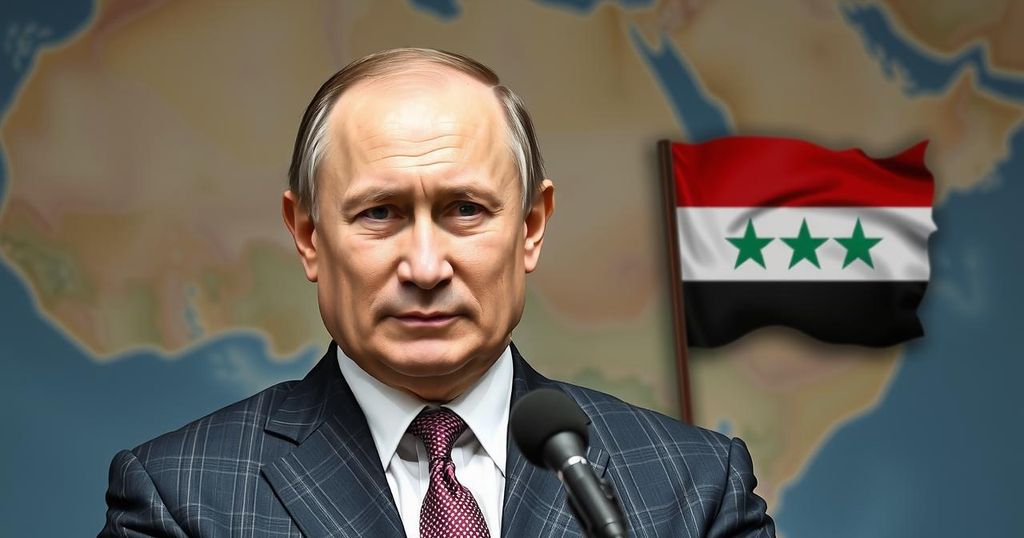Vladimir Putin’s influence in Africa is under threat as Sudan rejects a Russian naval base, and Libya’s Prime Minister resists increased Russian military presence. These developments follow Asssad’s weakening hold in Syria, raising questions about Russia’s regional strategy and military presence in Africa amidst existing conflicts.
Vladimir Putin faces significant setbacks in Africa as two key allies, Sudan and Libya, express resistance to increased Russian military presence, especially after Bashar al-Assad’s regime in Syria faces collapse. Sudan officially declined Russia’s request to establish a naval base in Port Sudan, motivated by concerns over potential repercussions from Western nations. Simultaneously, Libyan Prime Minister Abdul Hamid Dbeibeh asserted that no foreign military operations would be tolerated without explicit agreements, stating that any unauthorized entry would be actively opposed. While Russia has historically aimed to fortify its influence in Africa, these developments jeopardize its objectives, particularly in the context of a potential withdrawal from Syria.
Russia’s ambitions to set up a naval base in Sudan date back to 2019 but have faced delays due to ongoing internal conflict and civil war. The nation has been involved with the Wagner Group, which has supported competing factions within Sudan’s military framework. The hastened departure of Assad has cultivated uncertainty regarding Russia’s military entrenchment in Syria, including a significant naval facility at Tartus. As Moscow contemplates shifting military resources to bolster its presence in Libya, the firm resistance from Sudan and Libya proves to be a major obstacle, highlighting the complicated geopolitical landscape in the region.
The implications of such developments are critical. If Russia succeeds in negotiating its military operations with alternative groups in Syria, it may stabilize its influence. Conversely, if it fails to navigate its partnerships in Libya and Sudan effectively, its ability to exert power in the region will suffer considerable strain, worsened by the ongoing demands of the conflict in Ukraine.
The current discourse surrounding Russia’s military strategy in Africa follows the decline of support for Bashar al-Assad in Syria. This change has compelled Russia to reevaluate its military alliances, particularly in Africa, where it seeks to maintain influence and establish naval capabilities. The recent assertiveness from Sudan and Libya against Russian military ventures signifies a shift in the regional balance, thereby challenging Moscow’s historical alliances within the continent. Russia has aimed to bolster its position through military resources and strategic partnerships, but internal strife and international relations are integral to understanding these dynamics.
The escalating tensions between Russia and its allies in Africa, particularly Sudan and Libya, suggest a potential decline in Moscow’s regional influence. With both nations resisting Russian military encroachment, particularly following the political turbulence in Syria, the strategic ambitions of Russia are increasingly threatened. The outcome of these developments will likely shape the future of Russian operations in Africa and its wider geopolitical strategy amidst the ongoing challenges in Ukraine.
Original Source: www.newsweek.com






